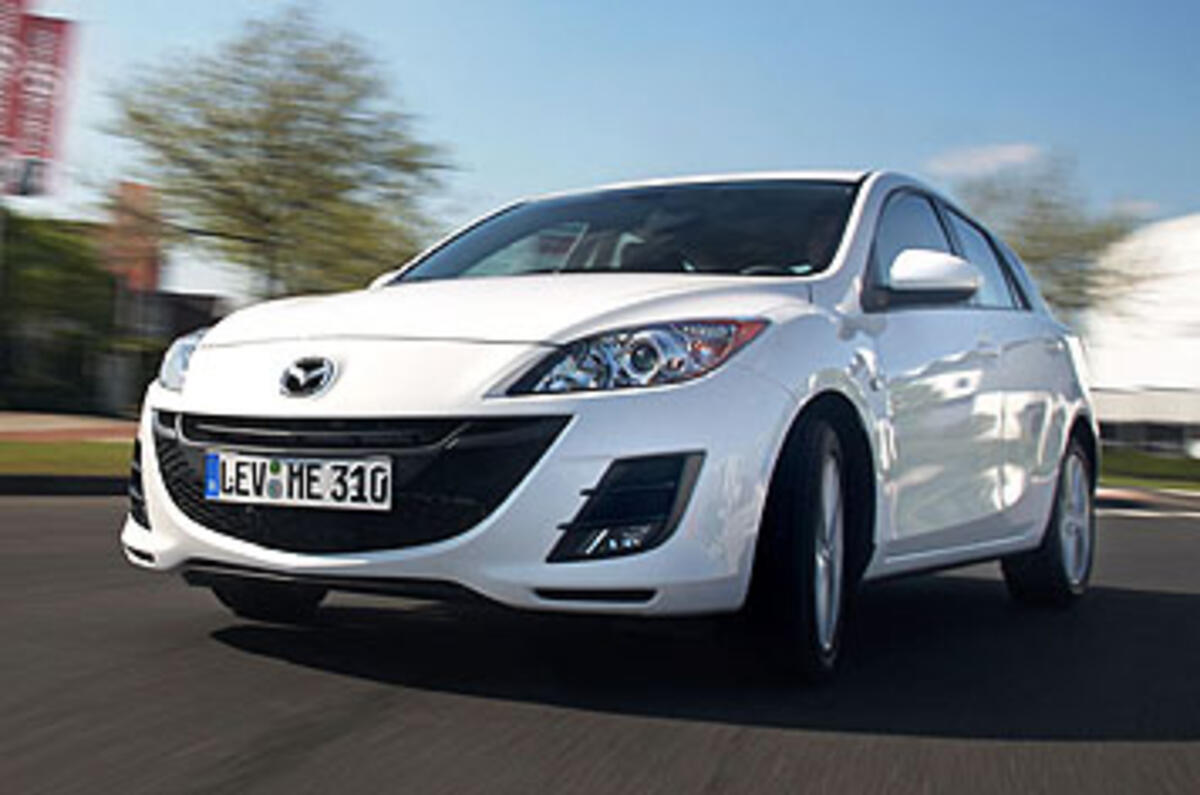What is it?
Technically, it’s Mazda’s first model to be offered with a fuel-saving, emissions-lowering stop-start system. But, for reasons we’ll get on to, it’s easier to think of this car as a lukewarm version of the Japanese car maker’s facelifted 3 hatchback, which just happens to have some new and interesting engine technology.
As anyone who’s checked out this car’s vital statistics will have already observed, this car might have commendable fuel economy and emissions for a 148bhp petrol-powered five-door, but it’s no rival to Ford’s Focus Econetic on either fuel economy or CO2 emissions.
Mazda has been developing its own engine idle stop-start system for some time. It’s different from other systems because it doesn’t include a conventional starter-generator. Instead, Mazda’s system restarts the engine after a brief halt in traffic using a slightly more sophisticated and more powerful starter motor and Mazda’s own ‘DISI’ direct injection system.
The system automatically stops the engine when it detects the time is right and, once stopped, it automatically aligns the engine’s pistons towards the middle of their stroke. Using crankshaft position sensors it detects which piston is on a power stroke and, the instant you hit the clutch to move away again, it simply injects fuel into the cylinder, ignites the mixture, and uses the starter motor to put enough kinetic energy back into the crank to get it spinning again.
Mazda says its system is faster to restart and creates less vibration than a conventional starter-generator. But it does only work on direct injection engines...
Given that it had already added direct injection to the 3 MPS’s 2.3-litre turbo motor, and allowing for the fact that it simply wants to roll out DISI and i-Stop technology throughout its petrol engine range as quickly as possible, the easiest first step for Mazda was to add direct injection to the related 2.0-litre before it adapted it for the smaller 1.6-litre petrol four. Eventually it will adapt the system to work with its diesel engines too, but there are hurdles to overcome when dealing with compression ignition.
So forget about whether you think this should be Mazda’s launch car for its emissions-saving stop-start system; for nowat least, this 2.0-litre 159g/km 41.5mpg Mazda 3 is the only ‘i-Stop’ model that the company could offer. Phew. Moving swiftly on…
What’s it like?
Quite an impressive and much-improved family hatchback. The last 3 was an odd, unfinished and unsatisfactory car in many ways; this new one’s got more pleasing and less anonymous exterior styling, and a much softer-touch and more upmarket cabin. It’s both more refined and more enjoyable to drive too.
The old 3’s unsettled and noisy ride has gone, replaced by near Golf-like rolling refinement and handling that’s supple and compliant as well as sporting. Its power steering is also better than it used to be, although could still offer more natural feel.
What’s improved most is this car’s dynamic repertoire. The way it corners, and rides bumps and dips in the road, is much more confidence-inspiring than the old 3; this is a car you can engage with, even lean on occasionally. It feels like bosom kin of the benchmark-setting Ford Focus, while the old one seemed a very distant relative indeed.































Join the debate
Add your comment
Re: Mazda 3 2.0 Sport i-stop
I've been interested in Mazda's iStop system since the start of 2009, but personally I'm not ready to consider it further until it's at least available on the 1.6 litre model - hurry up Mazda! A 2 litre engine is good as a showcase, but not competitive in the green sector. Mazda are loosing ground.
Also, all the info I've read about the car to date fails to mention anything about regenerative braking technology. I presume this means this feature is absent, so I'm interested to know why. Perhaps, since iStop does not place as heavy demands on the battery as other start-stop systems, Mazda feel this is uneccessary? I don't know, but if I do decide to buy a green car from new in the next year or so, I'll want it to be still desirable in the 2nd hand market when I sell it in years to come. Therefore its good to know what's missing as well as what is present, and why.
Re: Mazda 3 2.0 Sport i-stop
I'm with you on that - it can't seriously be classed as sport verison - 10s is pretty slow
Re: Mazda 3 2.0 Sport i-stop
That'll be in about 2029 then.